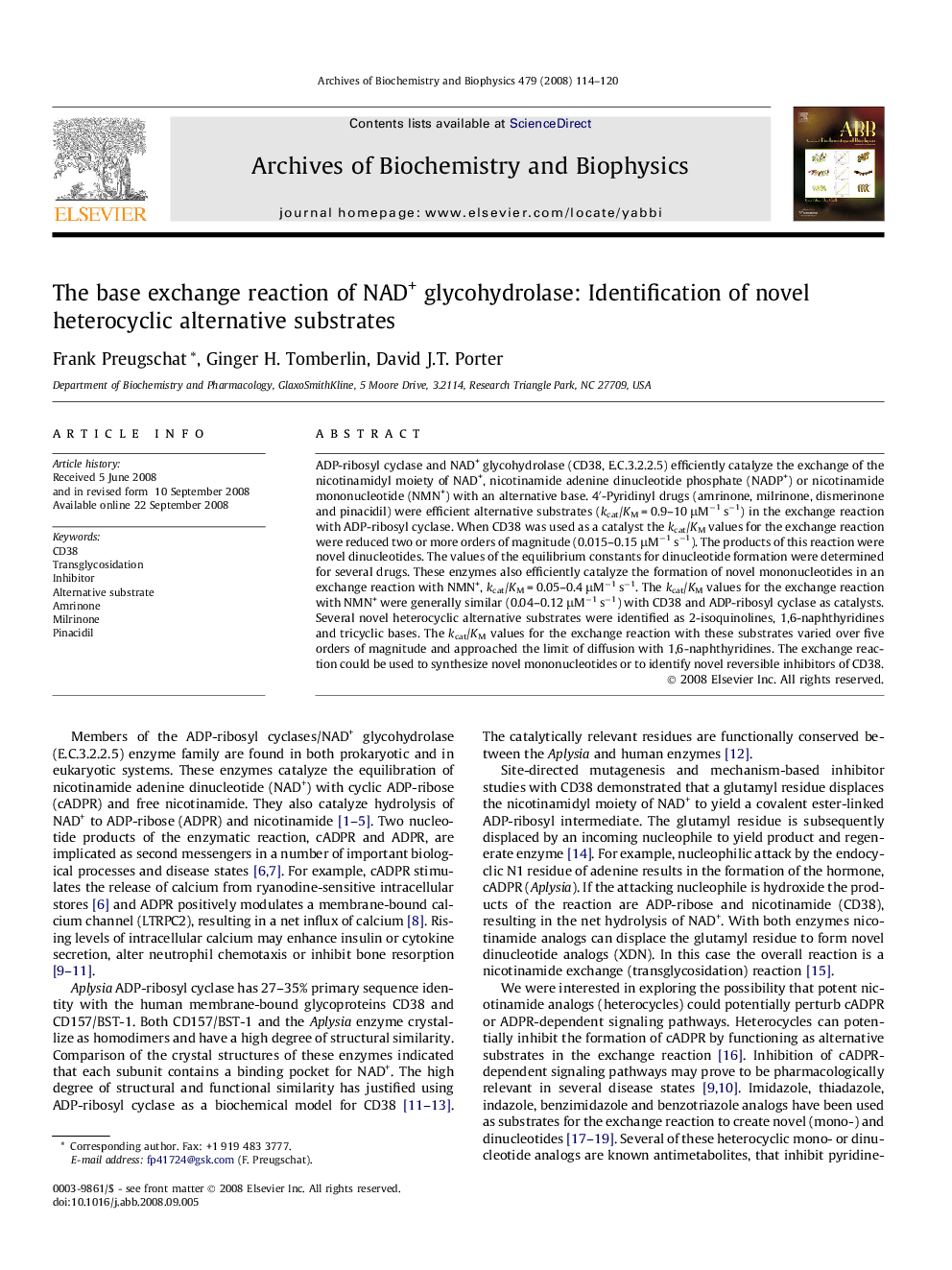| Article ID | Journal | Published Year | Pages | File Type |
|---|---|---|---|---|
| 1926701 | Archives of Biochemistry and Biophysics | 2008 | 7 Pages |
ADP-ribosyl cyclase and NAD+ glycohydrolase (CD38, E.C.3.2.2.5) efficiently catalyze the exchange of the nicotinamidyl moiety of NAD+, nicotinamide adenine dinucleotide phosphate (NADP+) or nicotinamide mononucleotide (NMN+) with an alternative base. 4′-Pyridinyl drugs (amrinone, milrinone, dismerinone and pinacidil) were efficient alternative substrates (kcat/KM = 0.9–10 μM−1 s−1) in the exchange reaction with ADP-ribosyl cyclase. When CD38 was used as a catalyst the kcat/KM values for the exchange reaction were reduced two or more orders of magnitude (0.015–0.15 μM−1 s−1). The products of this reaction were novel dinucleotides. The values of the equilibrium constants for dinucleotide formation were determined for several drugs. These enzymes also efficiently catalyze the formation of novel mononucleotides in an exchange reaction with NMN+, kcat/KM = 0.05–0.4 μM−1 s−1. The kcat/KM values for the exchange reaction with NMN+ were generally similar (0.04–0.12 μM−1 s−1) with CD38 and ADP-ribosyl cyclase as catalysts. Several novel heterocyclic alternative substrates were identified as 2-isoquinolines, 1,6-naphthyridines and tricyclic bases. The kcat/KM values for the exchange reaction with these substrates varied over five orders of magnitude and approached the limit of diffusion with 1,6-naphthyridines. The exchange reaction could be used to synthesize novel mononucleotides or to identify novel reversible inhibitors of CD38.
